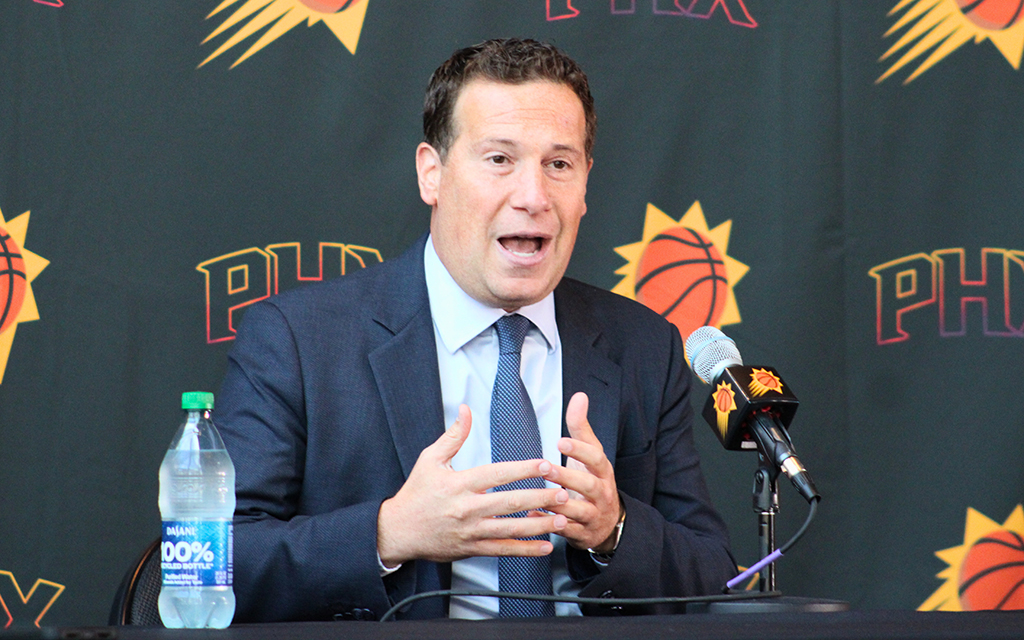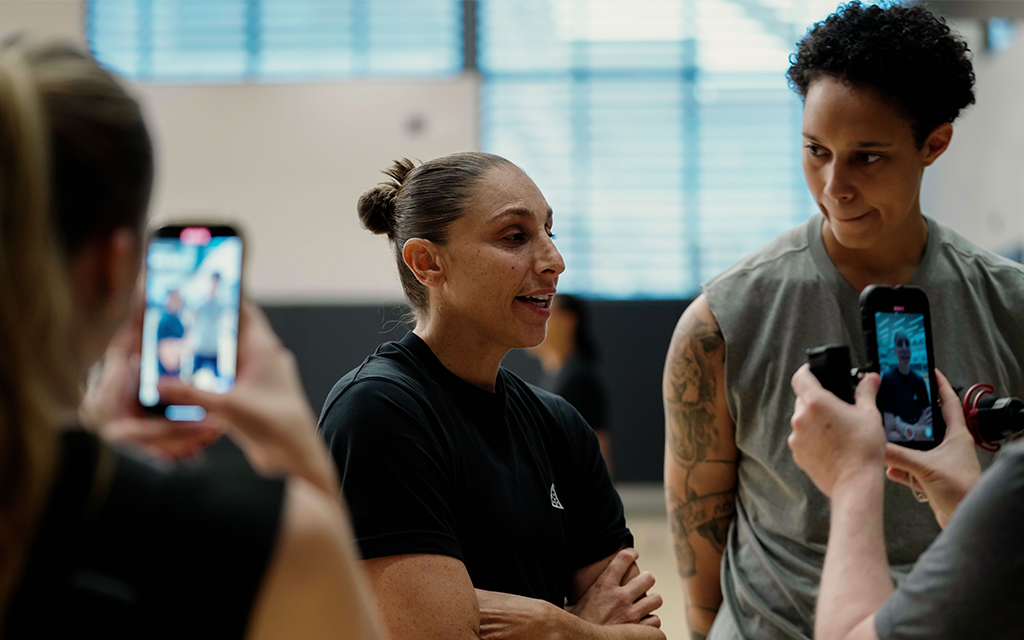
Mat Ishbia, the owner of the Suns and Mercury, has announced a groundbreaking $100 million commitment to construct a 123,000-square-foot practice facility in downtown Phoenix. (Photo by Bennett Silvyn/Cronkite News)
PHOENIX – Mat Ishbia is on a mission to revolutionize the basketball culture in Phoenix.
On Thursday, the owner of the Suns and Mercury announced a $100 million commitment to construct a 123,000-square-foot headquarters and practice facility in Downtown Phoenix.
This significant development will grant the Mercury exclusive access to their own facility, no longer sharing the Verizon 5G Performance Center with the Suns.
“These are professional athletes,” said Jesse Morrison, Mercury reporter for The Next. “They deserve to have a top-notch facility, and this sounds like it’s going to be a top-notch facility.”
In a statement, Ishbia expressed his dedication to making the Suns and Mercury a world-class organization both on and off the court. He emphasized the significance of investing in people to cultivate a thriving culture, highlighting that a basketball franchise transcends being merely a business — it serves as a catalyst for positive transformation.
Ishbia’s commitment to this substantial financial investment was a top priority as he looks to distance himself from Robert Sarver, the previous owner, who was suspended from the NBA for a year and fined $10 million for creating a toxic working environment.
This announcement signals the dawn of a new era in The Valley.
Such investments are rare in the WNBA, but it’s a positive step in the right direction. It’s a sign of hope for women’s sports, which has struggled in the past.
Sabreena Merchant, a women’s basketball Staff Writer for The Athletic, thinks it’s cool to see the foundation of the league persist through all the difficult times. “Now we’re seeing the rewards of people who have stuck around,” Merchant said.
Since its establishment in 1996, the WNBA has encountered numerous challenges, including gender equality, minimal media coverage, low salaries, small roster sizes, inconsistent attendance and travel issues.
According to a survey by ESPN, travel-related issues are a major concern for WNBA players. When traveling commercially, players often waste a lot of time waiting for flights. Merchant mentioned during the summer, airports tend to be crowded, leading to more frequent delays.
The league only guarantees charter flights during the postseason. Back in May, Ishbia noticed a clear disadvantage compared to other sports and advocated for a permanent charter for every team, aiming to get peak performance from athletes.
“I don’t think he [Ishbia] cares about spending money,” Morrison said. “If league rules permitted, he would easily fork over money for charter flights for his team.”
While the league has flaws, there has never been a better time to invest. The is coming off a record-breaking season in terms of viewership, attendance and digital engagement.
The new headquarters will offer state-of-the-art amenities, including indoor and outdoor courts, a fitness room, pools, underwater treadmills, a lounge area, a film room, a locker room and a dedicated chef.
Mercury players or coaches will not have to worry about court availability with the 58,000-square-foot facility – 5,000-square-foot bigger than the previous.
“These are the best athletes in the world,” Merchant said. “They deserve to be treated as such. We’re seeing improvements that sort of align them with what male athletes have always experienced in this country.”
Among the WNBA teams, only the Las Vegas Aces have their own practice facility, and the Seattle Storm broke ground for development back in March, costing more than $60 million.
Ishbia’s aggressiveness early on has been applauded, from acquiring superstar Kevin Durant shortly after taking ownership, orchestrating a trade for Bradley Beal to form a formidable trio and now another substantial financial commitment.
“He’s done so far what fans want out of ownership,” Morrison said.
When things weren’t working out with coach Vanessa Nygaard, leadership didn’t hesitate to pull the plug after only 12 games.
“I’m just pleased that every decision that he’s made seems to have a really smart direction for the future,” Merchant said. “Showing that the Mercury is a priority and that poor performance will not be tolerated. That’s just very cool because a lot of owners have treated the WNBA like their side project.”


